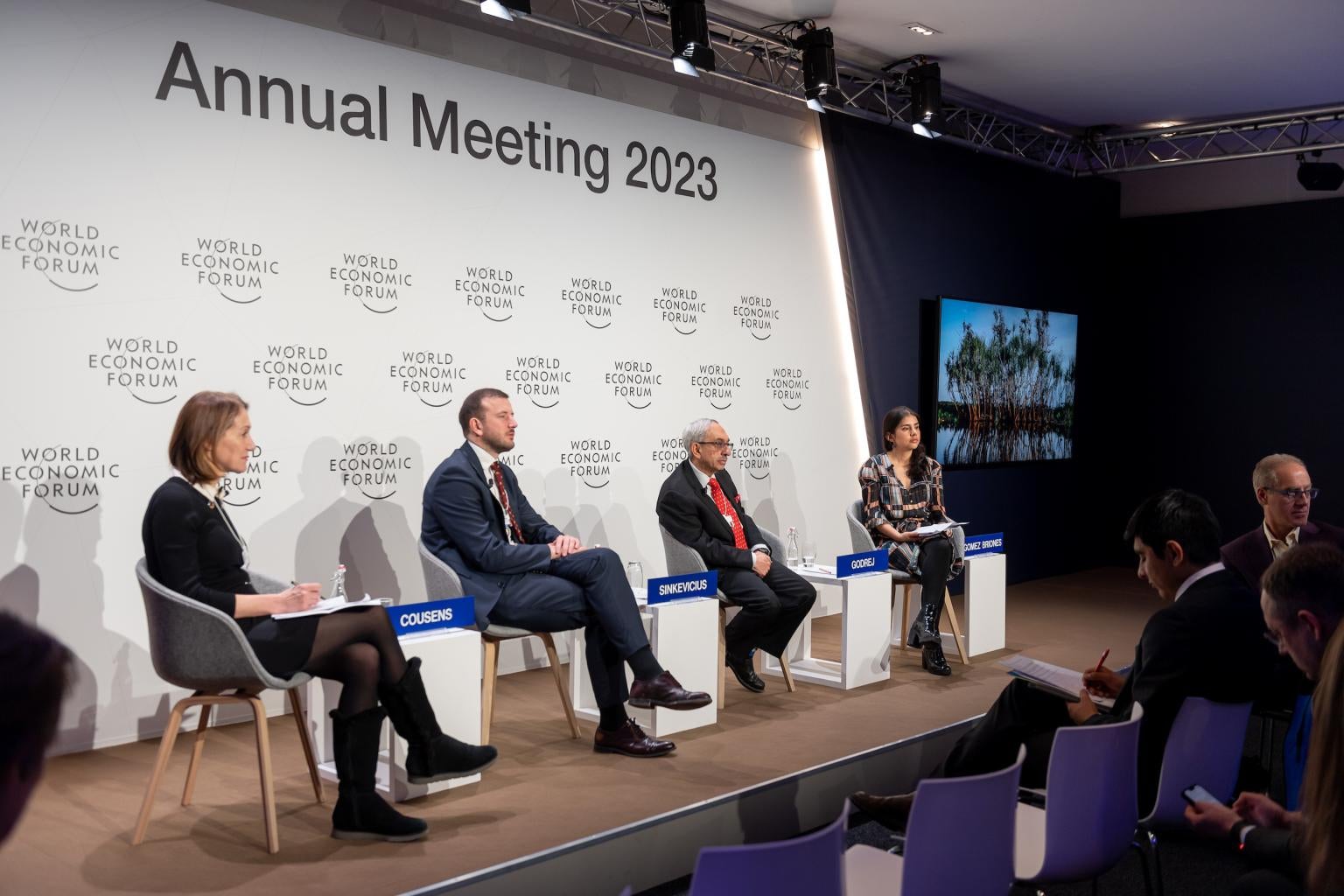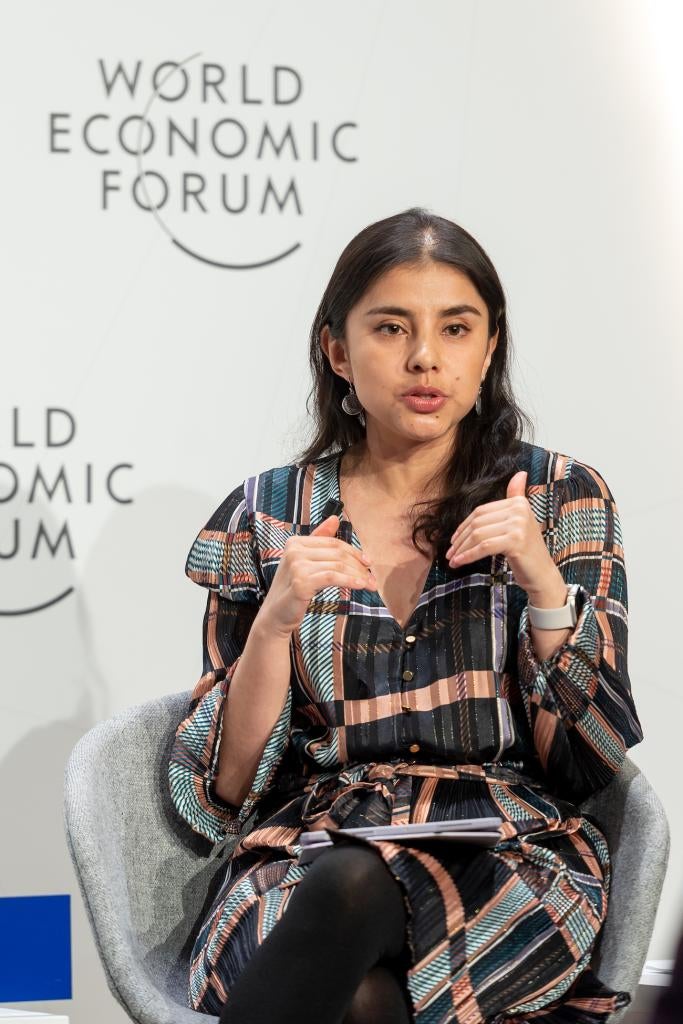
Carla Gómez Briones (MID ‘23), who studies energy and the environment at GSPIA, just got back from Davos, Switzerland. She was presenting her ideas for building a sustainable future on a world stage, the World Economic Forum’s annual meeting “Cooperation in a Fragmented World.”
Gómez Briones shared her most valuable takeaway from the Forum:
“The future we need is a radical departure from the present. Addressing the current climate and socioeconomic crisis requires bold collective action that prioritizes nature-based solutions, science-based goals, and a deep willingness to embrace change,” she said.
 In the days leading up to the conference, Gómez Briones was featured in TIME special edition magazine as one of six young leaders headed to present their ideas at Davos to promote a sustainable, equitable future. In the article, she summarized her goals and ideas for ensuring fair energy transitions.
In the days leading up to the conference, Gómez Briones was featured in TIME special edition magazine as one of six young leaders headed to present their ideas at Davos to promote a sustainable, equitable future. In the article, she summarized her goals and ideas for ensuring fair energy transitions.
“Achieving a sustainable future clearly requires a global shift from fossil fuels to renewable- and clean-energy systems that will allow the world to reach net zero by 2050,” she wrote.
“Investing in people’s skills, putting gender equality at the forefront, and prioritizing energy security are the vital underlying conditions for enabling a just transition where everyone can thrive.”
Among her highlights from the conference were speaking on panels about the role of blue carbon ecosystems in coastal regions and the potential to link them with carbon markets; debate about what are the green skills needed to transition to low-carbon economies; and discussion of the power of music to drive social change and climate action.
Gómez Briones is part of the Global Shapers Community, a network of young people driving dialogue, action, and change. Fifty of these young leaders, including Gómez Briones, were invited to present their solutions to the world’s biggest problems and “shake things up” at this year’s WEF, which occurred on January 16-20, 2023.
“I am grateful for this opportunity to learn, connect, and share my thoughts on a few panels on the nexus between development, climate, and just energy transitions,” she shared.